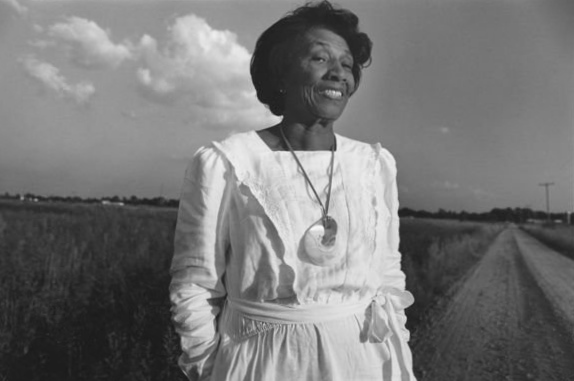Early years
Undine Smith Moore was born on August 25th, 1904 as the youngest of three children to James William Smith and Hardie Turnbull Smith. In 1908, her family moved to Petersburg, Virginia. Her hometown of Jarratt, Virginia consisted of a large African-American population. Moore would later recall memories of the community singing and praying at the Morningstar Baptist Church.
Education
At age seven, Undine Smith Moore began taking piano lessons under Lillian Allen Darden, who later encouraged her to attend Fisk University. Moore turned down a scholarship to Petersburg’s Virginia Normal Institute in order to enroll at Fisk, which is a historically black college. In 1924, the Juilliard School granted Moore their first ever scholarship to a student at Fisk, allowing her to continue her undergraduate studies. Moore graduated cum laude in 1926. In 1931, Moore received a Master of Arts and professional diploma in music at Columbia University’s Teachers College. From 1952-3, Moore studied composition with Howard Murphy at the Manhattan School of Music, and would often attend composition workshops at the Eastman School of Music.
Career
Although her teachers wanted Undine to continue at the Juilliard School, Undine Smith Moore instead took a job as supervisor of music in the public schools in Goldsboro, North Carolina. In 1927, Moore was hired as piano instructor and organist at Virginia State College in Petersburg, where she was also assigned with teaching classes in counterpoint and theory. The college appointed Moore director of the D. Webster Davis Laboratory High School chorus. Moore would write her own music to cater towards the students’ needs. In 1969, Undine Smith Moore and Altona Trent Johns become co-founders of the Black Music Center at Virginia State College, which aimed to educate members about the “contributions of black people to the music of the United States and the world.” Aside from teaching, Moore considered the Center to be her most significant accomplishment. In 1972, the Black Music Center closed after Undine Smith Moore retired from Virginia State College. Moore traveled widely as a professor and lectured on black composers and also conducted workshops. Moore was a visiting professor at Carleton College and the College of Saint Benedict, and an adjunct professor at Virginia Union University during the 1970s. She continued her teaching career until 1976. Moore was credited with teaching famous and popular musicians including Camilla Williams, Leon Thompson, Billy Taylor, Phil Medley, and Robert Fryson.
Compositions
Undine Smith Moore’s pieces include arrangements of spirituals, solo art songs, instrumental chamber music, and multi movement works for chorus, soloists, and instruments. Although she composed more than one hundred pieces between 1925 and 1987, only twenty-six were published during her lifetime. Moore wrote over 50 choral works, 21 compositions for solo voice and accompaniment, and 18 instrumental pieces. Most of this work occurred after 1950. In 1981, Moore's Pulitzer Prize-nominated oratorio Scenes from the Life of a Martyr was premiered at Carnegie Hall. The 16-part oratorio is based on the life of Dr. Martin Luther King, Jr. and written for chorus, orchestra, solo voices and narrator.
Honors
In 1973, Undine Smith Moore was presented with the Humanitarian award from Fisk University. In 1975, Moore was labeled music laureate of the state of Virginia, and the National Association of Negro Musicians named her an “outstanding educator”. Indiana University awarded her an honorary doctorate the following year. Moore’s contributions to music were recognized by the National Black Caucus, and in 1981 Moore was invited to deliver the keynote address at the first National Congress on Women in Music at New York University. She was also awarded the Candace Award from the National Coalition of 100 Black Women in 1984. She was given the Virginia Governor’s Award in the Arts in 1985.
Death & Legacy
On February 6th, 1989, Undine Smith Moore suffered a stroke at the age of 84. At her funeral, several of her spiritual arrangements were performed. She was buried in the Eastview Cemetery in Petersburg, Virginia. A composition by Adolphus Hailstork, "I Will Lift Up Mine Eyes," was created in 1989 to honor her memory. A historical marker was approved in 2010 for installation in Petersburg. Moore was named one of the Virginia Women in History for 2017.
